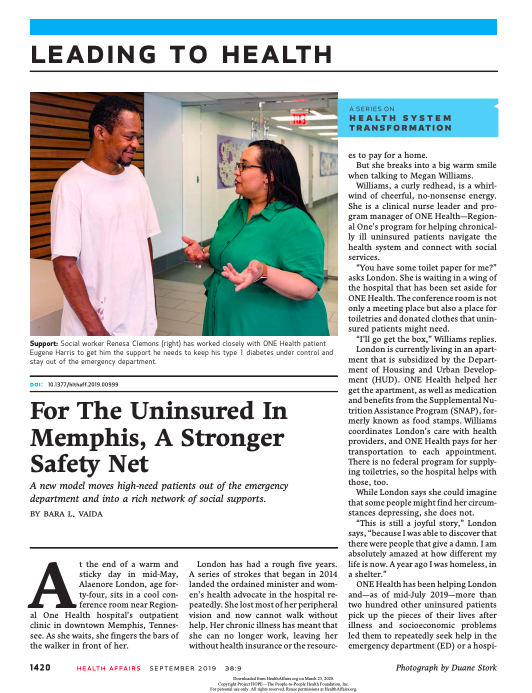
This article illustrates how ONE Health in Tennessee is helping chronically ill uninsured patients navigate the health system and connect with social services. The new model moves high-need patients out of the emergency department and into a rich network of social supports.
Over the past decade hospitals and health care systems across the country have been developing models of care to address the needs of vulnerable patients with multiple chronic conditions who frequently use the emergency department or hospital. These super-utilizers of health care are among the 5 percent of patients who account for more than 50 percent of the nation’s health care spending, according to the Medical Expenditure Panel Survey.
As of mid-July 2019, ONE Health has been helping more than two hundred uninsured patients pick up the pieces of their lives after illness and socioeconomic problems led them to repeatedly seek help in the emergency department or a hospital bed. By working with a network of about 250 community groups across the region, the hospital has an ambitious plan to help as many medically complex uninsured patients as it can.
This article is part of a series on transforming health systems published with support from the Robert Wood Johnson Foundation.

 Back to Resources
Back to Resources